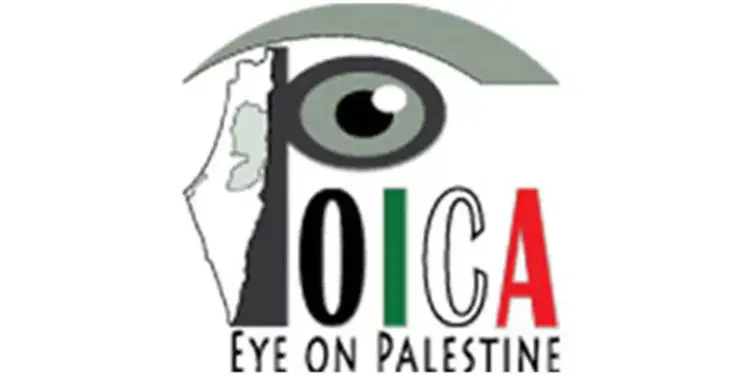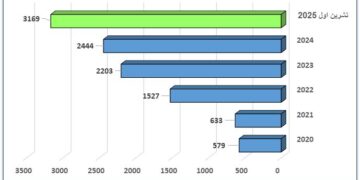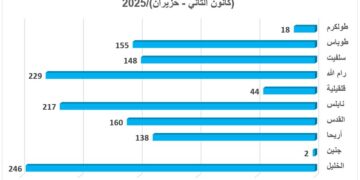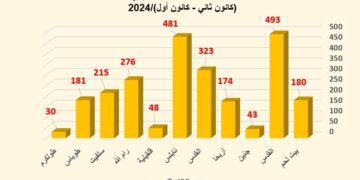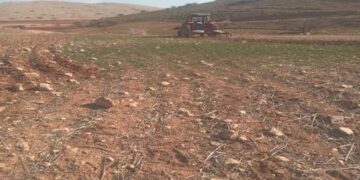Israeli Settlers from rightist organizations and movements are attempting to establish a new outpost on the hill adjacent to the Palestinian Shu'fat refugees' camp and at a distance of half a kilometer from the French Hill, in East Jerusalem. The Area where settlers intend to possess an estimated 180 Dunums, adjacent to Palestinians houses in Shu'fat refugees' camp, the settlers called the new outpost Shar Hamizrach.
On August 7, 2008 the settlers with right wing Knesset members toured the targeted area. Another tour visit to the area took place again on August 12, 2008 to put the cornerstone for the new outpost. The rightist movement land of Israel Trustees published an announcement to encourage settlers to move to the designated site on the above mentioned date. The following highlights the essence of the announcement:
|
' The Jewish grip on Shar Hmzrak neighborhood is essential to prevent the territorial contiguity of the Palestinian state and to create a Jewish continuity between Ma'aleh Adomim and Jerusalem. Therefore, we must construct in Shar Hmzrak, which located near Reches Shufat settlement , on Tuesday, August 12, 2008 at five p.m..' |
The area in question is considered to be strategic for the settlers since it lies near the bypass road number one, which links Ma'aleh Adomim to Jerusalem, and along the controversial E1 area where the Israeli settlement council of Ma'ale Adumim plans to build 3500 housing units. So the new outpost will serve a dual purpose. First, it will form buffer zone between Palestinian neighborhoods, cutting them off from each other and creating small and fractured Palestinian enclaves. Second, encourage the influx of Jewish settlers in the new settlements in East Jerusalem to contributed to a Jewish Israeli demographic majority within the newly expanded Jerusalem municipal boundaries.
On the other hand, the area also considered to be strategic for the Palestinians, since it lies between three Palestinian communities within the East Jerusalem: Shu'fat refugee camp, Anata and Al 'Esawyeh . The site is the only open space available in that area. The following table classifies the three communities:
|
Palestinian community |
Built-up area Square Km |
Population |
Population Density |
|
Shufat Camp |
1.200 |
25,579 |
21,000/Km² |
|
Anata |
1.015 |
9,600 |
9458 / Km² |
|
Al 'Esawiya |
0.725 |
7,100 |
9793 / Km² |
Map 1 shows the area where the settlers intend to establish the new outpost
It is not the first time Israeli settlers try to establish new outposts. In Fact, the Israeli settlers have succeeded in their efforts and established dozens of outpost across the occupied territory. One example is Shvut Ami outpost near Kedumim settlement (one of Ariel's settlements bloc).
Conclusion:
United Nations Security Council Resolution 298 (1971) states that 'all legislative and administrative actions taken by Israel to change the status of the City of Jerusalem, including expropriation of land and properties, transfer of populations and legislation aimed at the incorporation of the occupied section, are totally invalid and cannot change that status.
The construction and expansion of settlements in and around Jerusalem violates International Humanitarian and Human Rights Law, particularly the Fourth Geneva Convention of 1949. Additionally, the Israeli colonization strategy destroys the chances for a just peace by manipulating demographic realities and other 'facts on the ground' in order to influence the outcome of future peace negotiations with the Palestinians. Even though every thing the Israeli settlers and the state of Israel do in the occupied Palestinian territory is a clear violation of international law, including numerous United Nations Resolutions and the Hague Regulations of 1907 and the Fourth Geneva Convention of 1949 ( Article 147), which state the following:
-
The Hague Regulations expressly forbids an occupying power 'to destroy or seize the enemy's property, unless such destruction or seizure be imperatively demanded by the necessities of war' (Article 23).
-
The appropriation and destruction of Palestinian land is an especially serious violation of the Fourth Geneva Convention, Article 147 of which clearly prohibits, ''extensive destruction and appropriation of property, not justified by military necessity and carried out unlawfully and wantonly.'' Violations of Article 147 constitute grave breaches of the Convention and should be prosecuted as War Crimes.
Prepared by
The Applied Research Institute – Jerusalem


